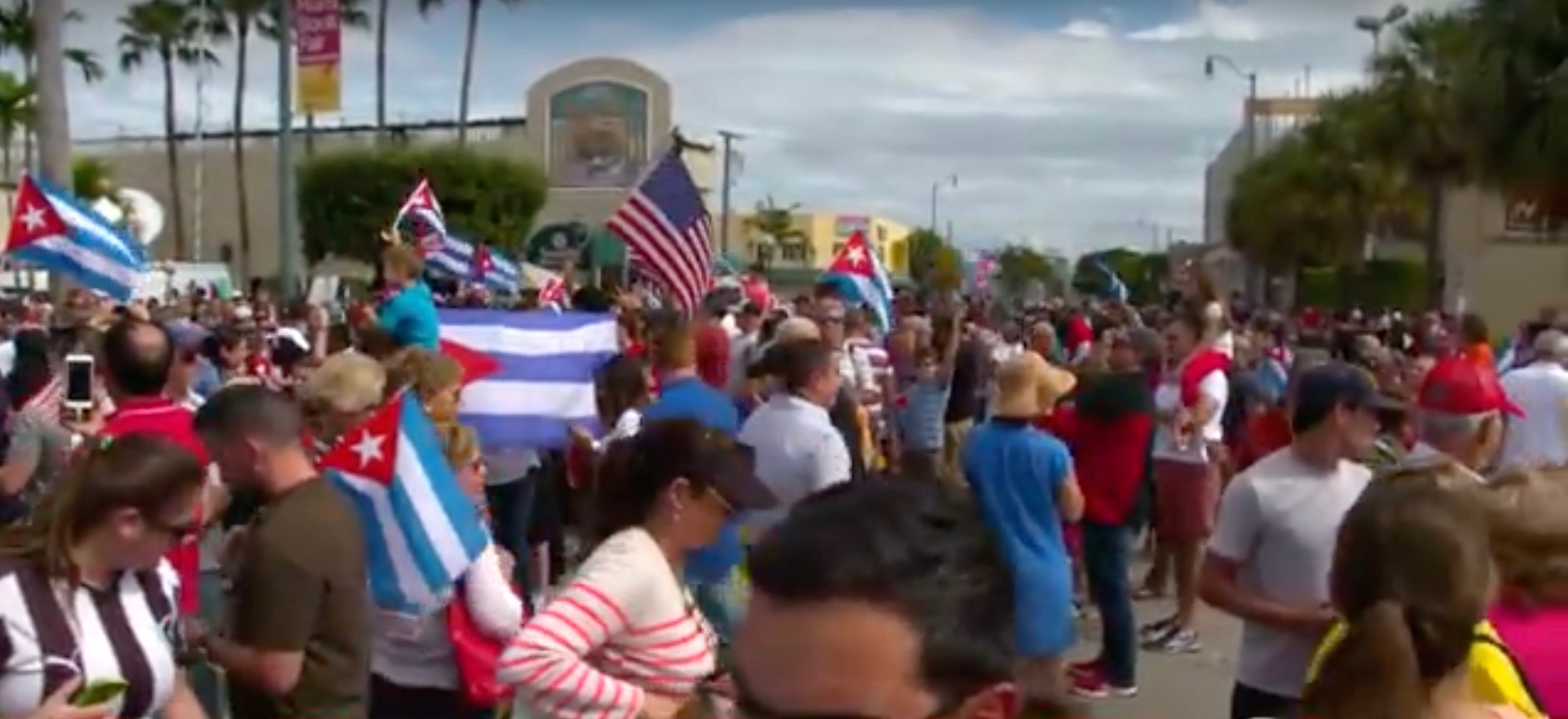
No cause for celebration
The inevitable happened: Last Friday, in Havana, Fidel died.
There was nothing surprising or remarkable about the event. The grim reaper spares no man or woman. Fidel Castro was 90-years-old and had been slowly dying for a decade. Fidel himself knew for a long time the end was approaching. Not too long ago as the time drew near, he even delivered a sort of farewell address in which he told the Cuban people not to make too big a deal about it when it happened and to stay calm, the revolution would endure.
He could believe that because, in contrast to what many in Miami and elsewhere expected, power did not have to be wrested from his cold dead hands. He ceded all his titles and almost all his power soon after he realized that after his operation, along with a big section of his colon, his old vitality was gone and was not coming back. He proceeded to engineer a successful succession which by now has been in place for years. Thus, when Castro’s death finally came, it was noted in Cuba and across the world as a historically significant passing, but in Cuba it did not register on the political equivalent of the Richter scale as a major geological event.
That is one of the things that makes the predictable and puerile demonstrations of joy in Miami so sad an ironic. For the end of Fidel also confirms the failure of the Cuban exile project. For, if Cubans have been remarkably successful in the United States as immigrants — professionally, politically, and economically — the exile project was not to become a model minority but to vanquish Fidel, smash his revolution in his face, and then string him up. The exile never came close to achieving its raison d’être, and now it never will, Castro died in his own country of natural causes.
Cuba is not my main beat in this publication by mutual agreement of the editor and myself. But it would have been an evasion to ignore this occasion altogether. Yet analyzing the legacy of Fidel Castro for Cuba and the world is a monumental task, far beyond what I can realize here and now. What I can say is that for a long time my vision of Fidel Castro has differed from the Manichean extremes of the demonizers or the idealizers.
The demonizers celebrated on Calle Ocho this past weekend. Why were they celebrating? Dancing on anyone’s grave is always an ugly spectacle and contrary to the faith most of the exiles proclaim. But dancing on the grave of a nonagenarian long out of power who, like most people, died of old age is especially repulsive. The French-Algerian writer Albert Camus wrote that it was wrong to celebrate any death because death is the universal enemy of humankind.
But there is an additional element the dancers and carousers in Little Havana chose to ignore: irony. In olden days, warriors sometimes danced on the graves of defeated enemies. Fidel bested the exiles—and the Unites States, their patron for decades until Obama’s pivot less than two years ago — at every turn and on virtually every battlefield, from the Bay of Pigs to the tug of war over Elian Gonzalez.
Castro even lived to see the end of the United States’ policy of diplomatic isolation and systematic demonization of Cuba. As far as my limited knowledge of Latin American history goes, he was the only leader to systematically say “no’ to the United States and prevail.
Fidel Castro was not brought low by the exiles or by the United States. Death claimed him as it will all of us. Celebrate that.
Just to make things clear, I am not saying the Cubans in Miami went out into the streets to participate in the unseemly spectacle. Most Cubans in Miami, whatever they thought about Castro, realize the inherent moral indigence and political counterproductive nature of behaving like a vengeful mob in front of the whole world.
But there is a minority so consumed by hatred and bitterness, as well as people wounded by the Revolution, intended targets or collateral damage, (characteristic of any revolution but not for that right or justifiable) whose pent-up passion had long been ready to erupt.
As far as I can tell from the images in the media, however, that group was big enough at most to fill up a few blocks around the Versailles Restaurant, the epicenter in Miami of this kind of thing. It would be good if the media would broadcast an aerial view of this crowd and the one at the annual Calle Ocho festival. I am betting no one will dare. The media in Miami is long past contradicting the prevailing hardline narrative.
Incidentally, Versailles is the same place where a group of hardliners congregated three weeks ago to toast Donald Trump’s electoral victory, late into the night, with champagne. Enough said.
Friday Fidel died and there was no political earthquake in Cuba. January 20, Donald Trump becomes President of the United States and Republicans are already planning the scorched earth policy they will carry out to destroy every advance in social justice and international diplomacy scored by Obama, beginning with denaturing an institution as old and popular as Medicare. This the real transition on the horizon with the most relevance to Cubans in the United States, one I will be writing a lot about in the immediate future.


